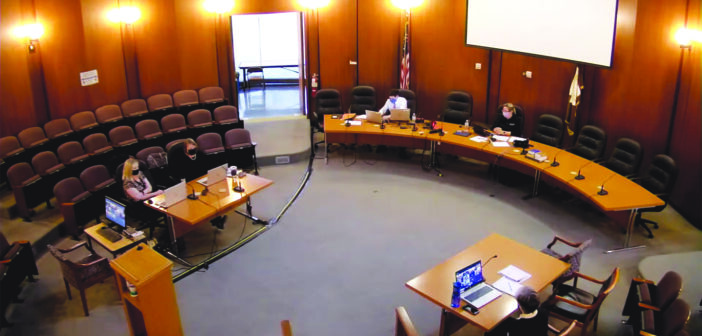At a March 23 Community Development Committee meeting, members of the Bethlehem Affordable Housing Task Force presented to the city council their intentions and objectives, focused on the mission of increasing affordable housing.
Last November, Councilwoman Grace Crampsie Smith met with this task force for the first time, with a focus more on the area’s lack of housing that is affordable for the working class.
A majority of the meeting was heavily data-driven. Director of community and economic development Alicia Miller Karner laid out the issues the task force has been, and will continue to be tackling.
“The best decisions are based on sound and objective analysis of quantitative and qualitative data — to really understand what the challenges are and try to address them objectively,” Karner said.
According to Housing and Community Development Administrator Tina Roseberry, citing partially from census data and recent local studies, a little less than half of Bethlehem’s population is considered low to moderate-income with about the same amount of individual households being considered cost-burden. This means that a resident is paying more than 30 percent of their gross income to cover housing costs.
Roseberry said this is a “staggering percentage,” considering one-fourth of Bethlehem residents make less than $25,000 a year. This isn’t enough to afford many rentals locally.
Roseberry said it costs $150,000 to buy a home today in Bethlehem. The average local home sales price has increased 11 percent, but more importantly to the members presenting, the average rent went up 18 percent in the last decade.
To the task force, these numbers spell out a systemic problem in need of immediate response catalyzed by the local government.
“We know we have to lead the conversation; the market alone will not fix this for us,” Roseberry said. “We really have to create the environment through subsidy and policy to partner with the private sector to accomplish our goals.”
Karner described the specific roadblocks to their success including the need for cheaper, but profitable land, the high cost of construction, too-far-extended timelines for development, lack of housing entities that can start viable projects, insufficient housing incentive and necessary updating to management of affordable units.
As stated repeatedly throughout the meeting, a theme motivating council members and presenters is to ensure increased, quality living situations for the middle and lower-middle class families.
“Bethlehem is a gem in so many ways,” Crampsie Smith said. “It was built on the backs of men and women who wanted more than anything to just have a stable, sustainable home and neighborhood to live in. We owe it to our predecessors as well as our current residents to ensure we are truly inclusive and offer diverse, mixed-income level housing for all.”






Comment policy
Comments posted to The Brown and White website are reviewed by a moderator before being approved. Incendiary speech or harassing language, including comments targeted at individuals, may be deemed unacceptable and not published. Spam and other soliciting will also be declined.
The Brown and White also reserves the right to not publish entirely anonymous comments.